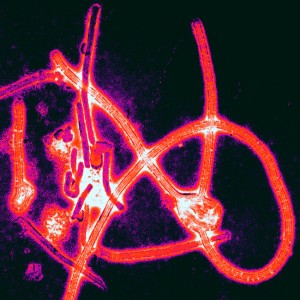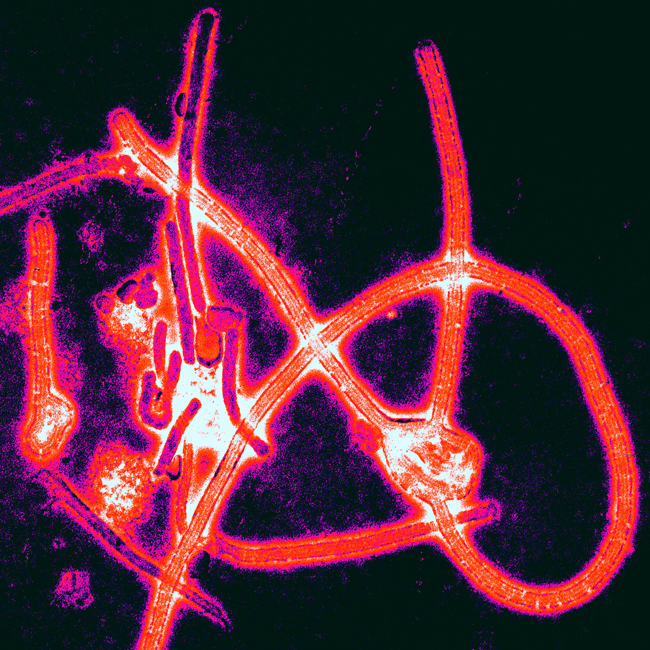
Wyneese Speed-Harris, a pharmacy employee at Howard University Hospital, recalls being notified about the patient when she first stepped into work at 8 a.m. “We were alerted that there were rumors of someone having Ebola, but they were just rumors,” she said.
By noon today, Howard spokeswoman Kerry-Ann Hamilton announced that the hospital, the D.C. Department of Health and the U.S. Centers for Disease Control and Prevention had “ruled out” Ebola in a man who recently traveled to Nigeria. The patient has been under observation for Ebola-like symptoms at Howard’s hospital, where he was initially described as a “low-risk patient” in stable condition
“Ebola has very clear symptoms that inevitably worsen over time, inclusive of fever, bleeding from the eyes and a growing rash that consumes over 75 percent of the human body,” Dr. Joxel Garcia, director of the district’s health department, said in a statement.
“Based on the clinical presentation of the patient, the medical team was able to rule out Ebola,” he said. “The patient will be treated for other illnesses.”
However, Dr. John Davies-Cole, the district’s epidemiologist, said that “out of an abundance of caution, we will continue to work with the Howard University medical team to monitor the patient’s progress.”
A similar travel-related case was reported at Shady Grove Adventist Hospital, just north of Washington in Rockville, Md., but it was ruled out as Ebola last night. Suspected cases have also been ruled out in California, New York, Virginia and elsewhere since the outbreak in Africa reach epidemic proportions over the summer.
However, the man being treated for Ebola at Texas Health Presbyterian Hospital of Dallas developed symptoms about five days after returning from Liberia, according to the CDC. It is the country’s first Ebola diagnosis.
During a White House briefing yesterday, medical and security officials discussed facts about Ebola and the nation’s response. “The Ebola virus is not easily spread like a cold or influenza,” explained Dr. Anthony Fauci, director of the National Institute of Allergy and Infectious Diseases. “You must come into direct contact with the bodily fluids of a sick person or through exposure to objects that have been contaminated with infected bodily fluids.”
Reaction at Howard University has been mixed.
“Things like this have also happened before, and we were able to control it,” said film student Giselle Johnson, “but it’s kind of scary since it’s so close to home.”
“I was really nervous about it,” said Admiria Cooper, a public relations major. “I have friends who have traveled to Africa over the summer.”
Earlier that morning, Carol Dudley, a career development director at Howard, said, “Three students were discussing it and acting hysterical.” However, Dudley expressed assurance that things were under control.
”When I found out that we were treating a patient [who might have] the Ebola virus, I felt proud of my university’s hospital being capable, or staffed with competent professionals to handle infectious diseases.”
Another employee, Sakinah Munir, said, “I’m more concerned about whoever else may be out in the general public that may be infected or been exposed.”
“I need to really get more substantive facts about Ebola, because what I have in my mind are two sides: one is that it’s like the flu virus in this country,” she said. “The other side is that it is dangerous, and it can kill people, and I do know that.”
According to the CDC, diagnoses “is difficult, because the early symptoms, such as fever, are nonspecific to Ebola infection and are seen often in patients with more commonly occurring diseases, such as malaria and typhoid fever.”
While some of the people who came in direct contact with the patient in Dallas have been monitored, the CDC says such precautions are unnecessary for travelers who flew with him on various legs of his route in West Africa, Europe and the United States.
“The ill person did not exhibit symptoms of Ebola during the flights from West Africa, and CDC does not recommend that people on the same commercial airline flights undergo monitoring, as Ebola is only contagious if the person is experiencing active symptoms.”
The man in D.C. returned from Nigeria, where the outbreak appears to have been contained. No new cases have been reported in Nigeria since Sept. 5, according to the CDC.
Amylia Johnson is a reporter for the Howard University News Service.










Recent Comments